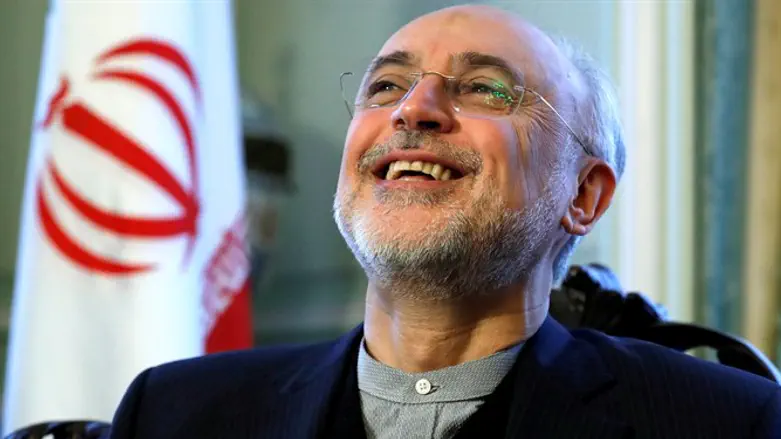
The chief of Iran's atomic agency hit out at European powers on Sunday, saying their broken promises gave the Islamic Republic little choice but to scale back its commitments under a nuclear deal, AFP reported.
Ali Akbar Salehi was speaking to reporters alongside Cornel Feruta, the acting head of the International Atomic Energy Agency (IAEA) who was on a one-day visit to Tehran.
The IAEA official's visit followed Iran’s announcement that it was firing up advanced centrifuges that enrich uranium at a faster rate -- the latest blow to the landmark 2015 nuclear deal.
Iran has scaled back its compliance with the 2015 deal signed with world powers in retaliation for US President Donald Trump’s withdrawal from the agreement last May.
Britain, France and Germany have been trying to save the nuclear deal and have vowed to help Iran evade the economic sanctions imposed by the US, shielding companies doing business with the rogue state in an effort to preserve the Iran nuclear deal.
"The European Union was supposed to be the replacement of the US but, unfortunately, they failed to act on their promises," Salehi told reporters on Sunday, according to AFP.
"We heard the EU spokesperson say they would be committed to the JCPOA as long as Iran is," he said, referring to the deal by its formal name, the Joint Comprehensive Plan of Action.
"I am wondering. Are they committed to non-adherence? Are they committed to breaking promises? Unfortunately, the Europeans have done this so far."
The head of Iran's Atomic Energy Organization said the JCPOA was now just a "one-way street".
"The street was supposed to be two-way. If it's going to be one-way, the Islamic Republic of Iran will definitely make the right decisions at the right time like it has done with these three steps," said Salehi.
The visit of the IAEA’s acting chief follows a report in the Wall Street Journal earlier this week that Iran is stifling a United Nations probe of its alleged storage of nuclear equipment and radioactive material in Tehran.
Diplomats told the newspaper that Iran has refused to provide answers to important questions raised by the IAEA over allegations, first made public by Prime Minister Binyamin Netanyahu during his speech at the UN General Assembly a year ago, that Iran had established a now-dismantled site in Tehran to store equipment and material used during past nuclear weapons work.
On Sunday, Reuters reported that the secret site was found to contain traces of uranium.
During his visit, Feruta was informed about Iran's "announced activities related to its centrifuge research and development", according to a statement from the Vienna-based IAEA.
The UN nuclear watchdog said "ongoing interactions... require full and timely cooperation by Iran," which diplomats said may hint at worries about information sharing.
The IAEA recently released its latest report, in which it said that Iran has gone further in breaching its nuclear deal with world powers, increasing its stock of enriched uranium and refining it to a higher purity than allowed.
